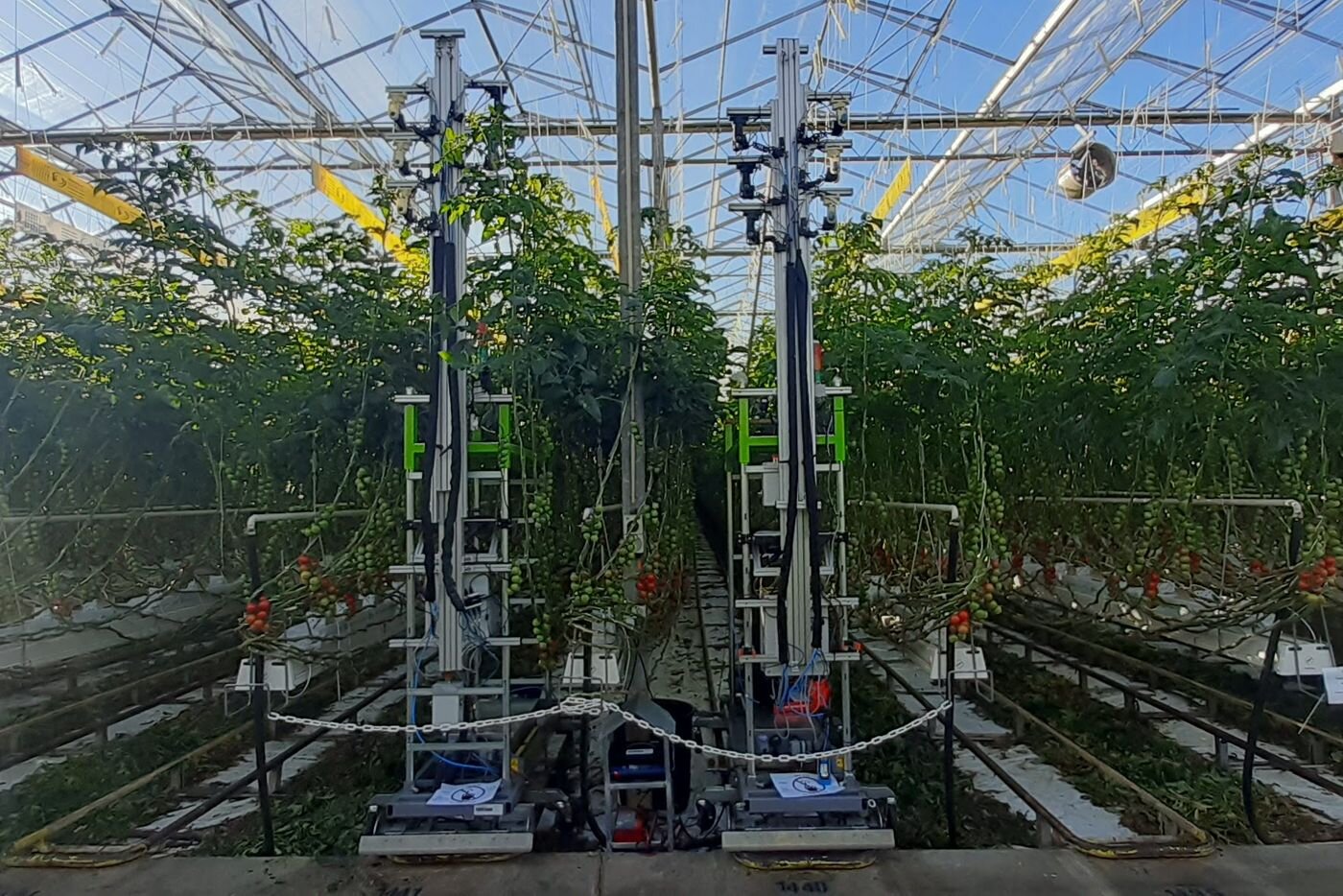BUZZ OFF, BEES. POLLINATION ROBOTS ARE HERE.
Advances in artificial intelligence are helping some startups develop another way to pollinate plants, which could increase yield compared with insects and human workers.
Across the globe, startups are testing robots to pollinate everything from blueberries to almonds.
ILLUSTRATION: JUSTIN METZ
The Future of Everything covers the innovation and technology transforming the way we live, work and play, with monthly issues on health, money, cities and more. This month is Artificial Intelligence, online starting July 2 and in the paper on July 9.
Farmers have long relied on insects, wind and even human workers to help pollinate their crops. Now, advances in artificial intelligence are helping some startups develop another way to pollinate plants: robots.
Across the globe, startups are testing robots to pollinate everything from blueberries to almonds. And in Australia, one company is so confident in robots’ abilities that it will soon deploy a fleet of them to pollinate tomatoes in its greenhouses.
Pollination robots could give future farmers a significant advantage, increasing yield compared with using insects, such as bees, and the human workers who are sometimes needed to help with certain crops. Scientists are also concerned that insect populations are declining because of habitat loss, pesticide use, climate change and other factors, which would make pollination robots even more important.
The robotic revolution is being sped up by so-called deep learning—a method that trains artificial neural networks that mimic the human brain. Advances in deep learning over the past decade have vastly improved AI’s ability to recognize images. That makes it easier for startups to develop robots that can quickly and accurately identify flowers for pollination.
Israeli startup Arugga AI Farming’s robots autonomously travel down a row in a greenhouse owned by Australian grower Costa Group Holdings. They use AI and cameras to quickly identify flowers ready for pollinating, and then blast them with air to pollinate them.
PHOTO: ARUGGA


